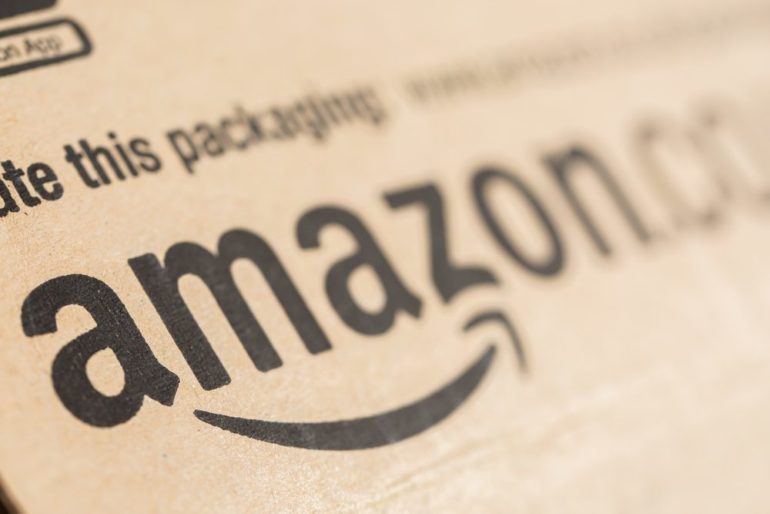Amazon paid a total of £220 million in direct taxes in the UK last year despite its total revenues from doing business in the country amounting to £10.9 billion.
Last night, for the first time in 21 years of trading in Britain, the US online retailer published details of the taxes that it paid in the past year.
Employer taxes accounted for the largest proportion of direct taxation, as the retailer employs 27,500 people in the UK, followed by business rates and corporation tax.
The company said that its total UK contribution in direct and indirect taxes was £793 million and that it invested £625 million in its infrastructure.
Amazon does not publish details of most of its UK profits or tax payments because retail sales, which totalled £6.7 billion in 2017, go through a Luxembourg company, Amazon EU, which reports only aggregated Europe-wide figures.
Amazon revealed earlier this year that it paid £63.4 million in business rates, about £40 million less than Next, the high street fashion chain, which made half the sales of Amazon.
Separately, in a filing to be lodged at Companies House today, Amazon UK Services, which is a small part of the group’s activities in Britain, will report that it made a pre-tax profit of £75.4 million compared with £72.4 million in 2017. Turnover rose to £2.4 billion from £2 billion previously.
Amazon, which is valued at $883 billion (£730 billion), was founded in 1994 by Jeff Bezos, a former hedge fund executive. He is the world’s richest person with a fortune of about $110.7 billion, despite having paid a $38 billion divorce settlement.
As well as its cloud computing and online retail units, Amazon bought Whole Foods, the upmarket organic grocer, for $13.7 billion in 2017, greatly expanding its footprint in US groceries. Amazon has about 475 Whole Foods stores in the US with a few in the UK.
Last year the company became the focus of anger from MPs and campaigners who called on the government to change the law to force Amazon to reveal the true level of its UK profits.
The company revealed in August last year that its UK Services subsidiary paid £1.7 million in UK tax in 2017 on revenues of £2 billion and profits of £79 million. The corporation tax bill of £4.6 million for the branch of the company that runs its UK warehouses and customer services fell by 38 per cent while its operating profits tripled. Payments of £2.9 million were deferred.
The small tax bill was the result of an employee share scheme structured in a way that reduces Amazon’s tax liability when the share price rises. Critics said that the numbers were misleading because Amazon did not report details of the tax paid on three quarters of its UK revenues, leaving taxpayers in the dark about its total contribution.
Amazon and other online retail groups face the prospect of a tax based on 2 per cent of sales next year as part of the government’s plan to help high street shops to compete on equal terms.
Retailers’ bosses such as Dave Lewis, Tesco’s chief executive, and Mike Ashley, the owner of Sports Direct, have called for an online sales tax to help to give high street shops fairer terms.
Amazon said last night: “The UK is a hotbed of talent and opportunity and we’re pleased to play a role in nourishing that and supporting growth.”


